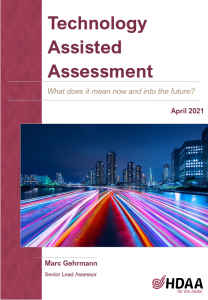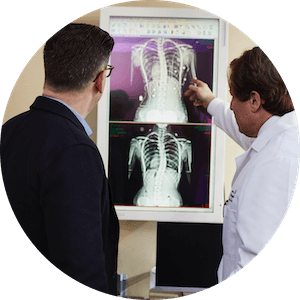
Remote Assessments
Remote Assessing is the name of the methodology used by HDAA to conduct assessments without physically visiting a clients location or sites.
HDAA is accredited to IAF MD4 Information and Communication Technology for Auditing. MD4 accreditation confirms that our methodology for the implementation of remote assessments is robust and effective for the purpose of third party assessments.
Requirements for what was originally known as “Computer Assisted Auditing Techniques” have been in operation since 2008. In the intervening years the global use of technology has rapidly increased and the types of technology have enabled more robust and secure processes to be used for the different assessment activities: e.g. secure portals for document sharing, video conferencing for group or individual meetings and interviews, live stream video tours on hand held devices such as smart phones for site inspections.
COVID-19 created a situation where our use of remote assessing increased considerably, enabling us to continue to provide assessment services for our clients and support services to maintain certification time frames and obligations in a safe and effective way.
We’ve developed a full Fact Sheet about how we conduct remote assessments, the technology we use, approach to planning and how the assessment activities are managed; you can download our FAQ on remote assessments here.
When planned well and appropriately for a service’s needs, remote assessments provide an immediate, straightforward and effective assessment experience from a distance.
HDAA conducted a controlled evaluation and identified there is little by way of process to differentiate remote assessments from on-site assessment in terms of the outcomes. The evaluation also reported a good level of engagement from service providers whose experience of remote assessments has been less time consuming or “busy” on the day of assessment, resulting in a high level of satisfaction by service providers and assessors. Remote assessments often reduce direct and indirect costs, predominantly related to zero travel and some reduction in duration (e.g. no travel between sites). The summarised results of our Remote Assessment Evaluation can be downloaded here.
Remote assessments have an important place in the range of assessment services and methodologies that can be used for third party assessment. The technology available today means this approach is equivalent to traditional methods of auditing with human, economic and environmental advantages outweighing the few disadvantages that exist.
What technology is involved?
Meetings and interviews
For all meetings during an assessment, HDAA assessors use Zoom video conferencing meetings. To manage privacy and data security we have strict protocols in place as to how Zoom is used in assessments.
Our assessors are all trained in the use of Zoom and our processes reflect best practices for privacy and confidentiality using this specific technology. Participants and consumers may opt to be interviewed via Zoom or by phone.
Document sharing and review
The HDAA Client Gateway, is securely maintained on our system using Australian cloud servers. The Gateway provides a secure pathway for our clients to upload evidence documents such as policies and procedures. A Gateway is opened for each organisation during the planning phase of your assessment. Access to your Gateway will be sent by email to the key contact person at your organisation and require an authentication activity to be completed prior to access being obtained.
For more sensitive documents or those that can’t be uploaded to the Gateway for logistical reasons, organisations can share their screen. The assessor will then guide the person sharing the screen (e.g., when to scroll down, what to click on, and where to pause).
Do organisations feel that remote assessments are beneficial?
Post-assessment responses from organisations and assessors have been positive. Overall, people find the process less intrusive, less stressful and more accessible and inclusive to staff and management (they can attend assessment meetings irrespective of geographical location). Assessors have found more time can be spent in high risk areas such as incident reviews and increasing sample sizes of staff files if needed.
Want to know more? Click here to download our Frequently Asked Questions guide.
Official resources
The following documents have been published by the International Accreditation Forum (IAF) and outline the principles that we are expected to adhere to when completing Technology Assisted Assessments:
How Can HDAA Help You Today?
National Disability Insurance Scheme (NDIS) Assessments
HDAA is your experienced NDIS assessment partner that can provide both verification and certification
NSQHSS Dental Services
The ACSQHC has granted approval to HDAA to assess health service organisations using the NSQHSS for Dental Practices.
Diagnostic Imaging (DIAS) Accreditation
HDAA has been an approved accreditor for DIAS since its implementation in 2008.

View All HDAA Programs
HDAA provides assessment and certification services for numerous Australian standards. View our range of services from the HDAA home page.




